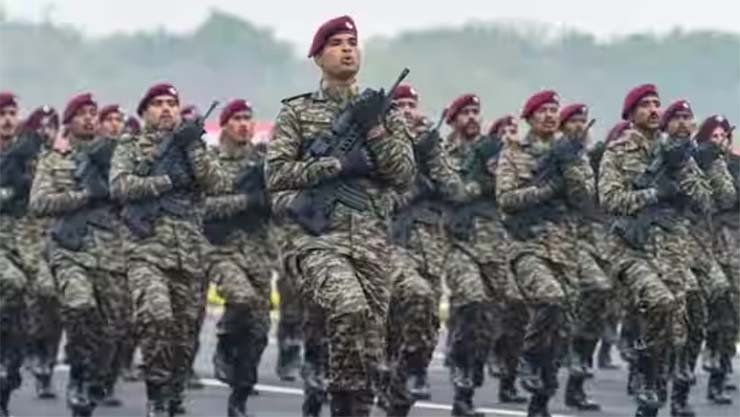
New Delhi: It is indeed a heavy agenda at the upcoming three-day Combined Commanders Conference (CCC) scheduled to be held in Bhopal from March 30 to April 1 with lessons from on-going Ukraine war and the military stand-off in East Ladakh being on the table as also the use of stand-off weapons like armed drones, missiles and rockets in future wars.
The Conference (CCC) will discuss tactics, choice of hardware equipment, and the future of warfare, according to sources. The meeting is significant because it is happening against the backdrop of the ongoing war in Ukraine and the military stand-off in East Ladakh. The sources said the three-day premier military brainstorming event will see Prime Minister Narendra Modi addressing the commander in chiefs of all three services on the third day, with Defence Minister Rajnath Singh also participating in the event.
The last CCC was held in Kevadia in Gujarat in March 2021. This edition of CCC was scheduled to take place in Karwar in Karnataka in early March but the venue was subsequently shifted to Bhopal.
While the military commanders will discuss issues such as improving the novel Agnipath-Agniveer scheme, the topic of future wars will be the central theme of the conference with the year-long Ukraine war revealing the importance of stand-off weapons such as missiles, long-range artillery and rockets, and armed drones in a long drawn out conflict. Despite Russia commanding a huge military superiority over Ukraine, the latter has been able to push back a former superpower with the use of shoulder-fired anti-tank guided missiles, multi-barrel rocket launchers and long-range artillery.
That armed drones are the way to fight future wars has become amply clear from conflicts in Azerbaijan-Armenia and Russia-Ukraine conflict with Azerbaijan using Turkish drones against Armenian armour and Russia using Iranian-armed drones against Ukrainian armour and troops. While India’s key adversaries in the north and west have Chinese armed drone Wing Loong II in their arsenal, the country is still to catch up in armed drone technology as its military uses drones essentially for reconnaissance and surveillance purposes.
Another likely topic of discussion is the use and impact of social media as part of information warfare against an adversary. Today, an advanced adversary uses social media to spread disinformation against its enemy apart from using these technology platforms to spread disaffection, radicalization, and chaos in the opposition camp. Information warfare is a key tool of the Chinese PLA and along with cyber-attacks has been part of the hybrid warfare being practiced by Beijing in the past decade. Social media is not only a tool to understand the enemy but also to create confusion through sympathizers within the opposition camp. The Pakistani military and deep state are well versed with the technique to spread a false narrative in the enemy camp and have tested this time and again in India through their agent provocateurs, analysts said.
The military commanders are also expected to take stock of the situation on the borders as well in the Indo-Pacific with India having to protect nearly 7500 km of coastline apart from island territories.









